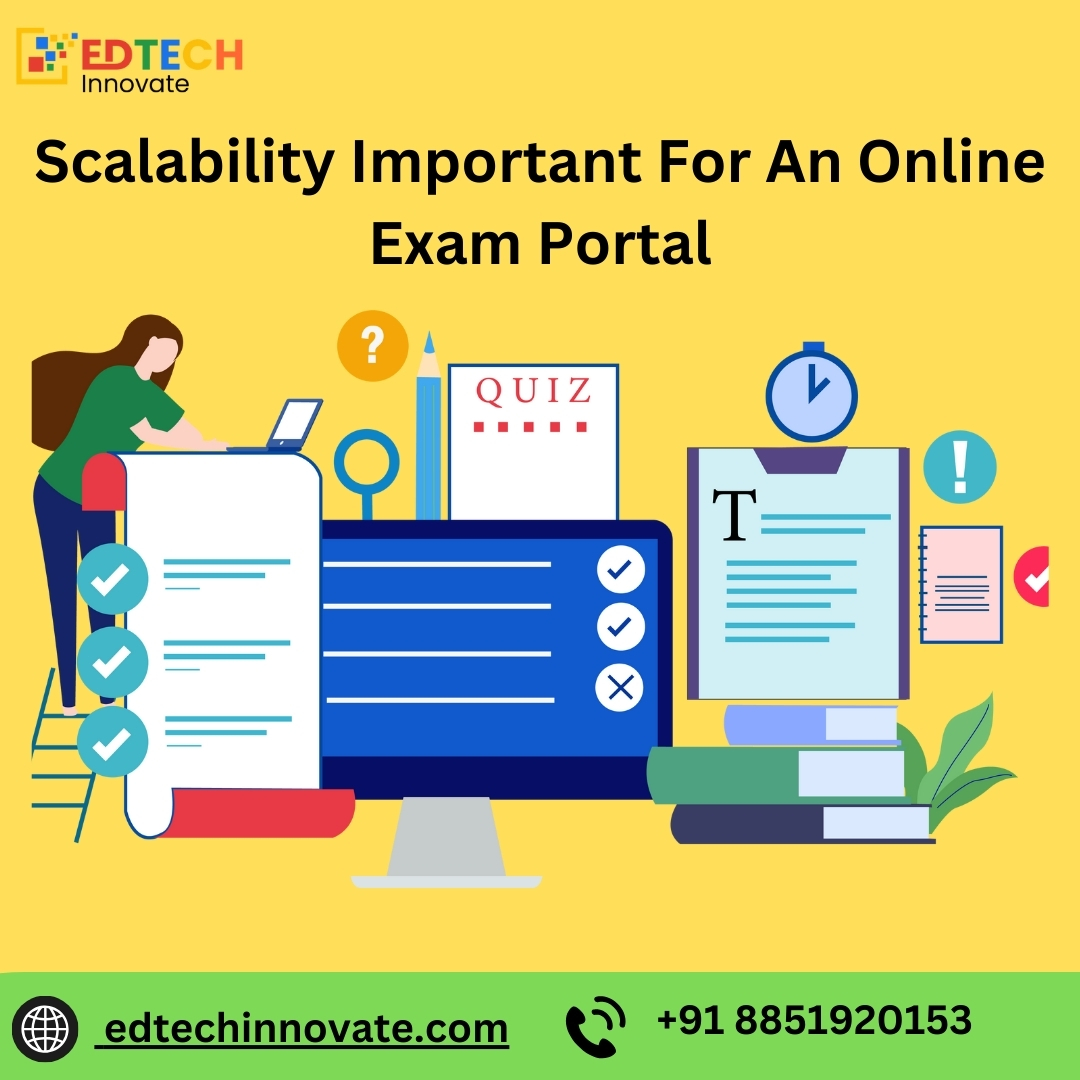In the digital era, education has transformed, with many institutions adopting online tools for learning, teaching, and assessments. Two prominent technologies in this space are online exam portals and e-learning platforms. While both are essential to digital education, they serve different functions. This article will explore the differences between online exam portals and e-learning platforms, highlighting their features, roles in education, and how they complement each other.
What Is an Online Exam Portal?
An online exam portal is a platform designed specifically for administering tests, quizzes, and exams in a digital format. It allows educators or organizations to create, schedule, and evaluate exams efficiently. These portals typically offer features like time limits, question banks, automated grading, and proctoring to ensure security and prevent cheating.
What Is an E-Learning Platform?
An e-learning platform or blogs of informatin is a comprehensive system that facilitates online learning. It delivers educational content, manages learning processes, and provides interaction between students and educators. These platforms offer various resources, including video lectures, assignments, quizzes, and discussion forums, enabling continuous learning at the user’s own pace.
Key Differences Between Online Exam Portals and E-Learning Platforms
1. Primary Functionality
- Online Exam Portal: The main purpose is to facilitate assessments. It focuses on creating, delivering, and grading exams in a secure, digital environment. The portal is optimized for the testing process, ensuring integrity and ease of use.
- E-Learning Platform: This platform supports the entire learning journey. It provides access to educational materials, facilitates interactions, and allows for a wide range of learning activities. While some e-learning platforms offer testing features, their primary focus is on delivering content and enhancing learning.
2. Content Delivery vs. Assessment
- Online Exam Portal: It is designed for assessments rather than content delivery. The portal focuses on testing the knowledge acquired by students through various question types such as multiple-choice and true/false questions.
- E-Learning Platform: This platform’s primary function is content delivery. It provides courses in different formats, such as videos, texts, and interactive quizzes, making learning accessible at the user’s own pace.
3. Security and Proctoring
- Online Exam Portal: Security is paramount. These platforms have advanced features like proctoring, secure browsers, and identity verification to ensure that exams are fair and free from cheating.
- E-Learning Platform: While basic security measures are available for assignments or quizzes, e-learning platforms lack the rigorous security features needed for high-stakes exams. Proctoring is rarely used, as the focus is on learning rather than formal testing.
4. User Experience
- Online Exam Portal: The user interface is streamlined, focusing on exam-related tasks. It includes features like time tracking, question navigation, and clear submission options to help students concentrate on their exams.
- E-Learning Platform: E-learning platforms lms offer a richer, more diverse user experience. They are designed for learning, with features like discussion forums, live sessions, and collaborative tools that encourage interaction and engagement.
5. Grading and Feedback
- Online Exam Portal: Grading is often automated, providing instant feedback for objective question types like multiple-choice or true/false. This allows for a quick evaluation of student performance.
- E-Learning Platform: Grading can be both automatic and manual, depending on the nature of the task. While automated grading is used for quizzes, assignments may require manual grading with detailed feedback from instructors.
6. Course Management
- Online Exam Portal: These portals are designed solely for assessment purposes and lack tools for managing entire courses. They organize exams but do not offer comprehensive course management features.
- E-Learning Platform: Course management is a core function of e-learning platforms. Educators can upload materials, schedule live sessions, assign tasks, and monitor progress, making them ideal for managing the full learning experience.
7. Engagement and Communication
- Online Exam Portal: Engagement and communication are minimal in exam portals. Student-teacher interaction is limited to instructions, and the focus is strictly on the exam process.
- E-Learning Platform: Engagement is central to e-learning platforms. They support communication through live discussions, forums, and interactive sessions, fostering a collaborative learning environment.
8. Accessibility and Flexibility
- Online Exam Portal: These platforms are more rigid, with strict time limits and structured environments. Once the exam begins, students must complete it within the allocated time frame, offering little flexibility.
- E-Learning Platform: E-learning platforms offer greater flexibility, allowing learners to access materials and complete assignments at their own pace. This makes them ideal for learners with varying schedules and commitments.
9. Integration with Other Tools
- Online Exam Portal: These portals typically integrate with systems like Learning Management Systems (LMS) for grading and record-keeping, but their functionality is focused on assessments.
- E-Learning Platform: E-learning platforms often integrate with a variety of tools, including video conferencing apps, content management systems, and collaborative platforms, enhancing the overall learning experience.
10. Purpose and Use Cases
- Online Exam Portal: These are used primarily for high-stakes testing, such as certification exams or university entrance tests, where security and fairness are essential.
- E-Learning Platform: E-learning platforms are designed for continuous learning and development. They are used in educational institutions, corporate training, and personal development courses, where the focus is on delivering knowledge rather than just assessing it.
Conclusion
While both online exam portals and e-learning platforms are vital to modern education, they serve different functions. Online exam portals focus on conducting secure, efficient assessments, while e-learning platforms are designed to deliver rich educational experiences. Understanding these differences helps educators and institutions choose the right tool for their needs. Often, using both systems together creates a balanced learning and assessment environment, allowing students to benefit from both high-quality instruction and fair evaluations.




One thought on “Key Differences Between An Online Exam Portal And E-Learning Platforms”